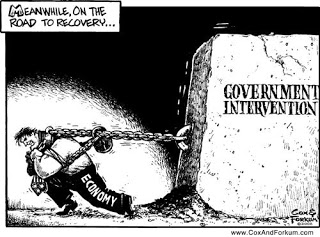Federal spending insulates region
Patrice Hill — The Washington Times
Throughout the recession, one major city stood out as an oasis for jobs and growth: Washington, D.C.
Supported by a gusher of federal borrowing and spending, the District of Columbia was the nation’s only metropolitan area that never stopped growing. It stood as a beacon for the nation’s millions of job hunters, from recent college graduates seeking careers in civil service to well-heeled lawyers cashing in on a bonanza of work stemming from health care and financial reform.
Being the center of government, Washington is used to being insulated from national economic trends. But the disconnect became particularly pronounced during the Great Recession — thanks to the federal government’s own expansionary response.
A $700 billion bank bailout and $814 billion economic stimulus bill helped push the federal deficit to unprecedented levels of more than $1.3 trillion in the past two years, and a disproportionate share of that tidal wave of money washed up right back in Washington.
But the spectacle of Washington’s free spending while virtually every other region has had to cut back — increasing prosperity in the capital in the midst of the worst recession since the Great Depression — has engendered public resentment and a pronounced anti-Washington sentiment that is now playing out in the midterm election cycle.
While the nation’s work force took a body blow, losing 8.3 million jobs — 5.5 percent of the jobs available before the recession — Washington suffered no more than a surface wound. It reported a loss of about 35,000 jobs, or 1.1 percent of the jobs available — mostly in real estate and construction businesses hurt by the housing collapse.
“We are one of the lucky ones,” said Alice Rivlin, a former Federal Reserve governor and director of Greater Washington research at the Brookings Institution. The only other cities that fared as well during the recession, she said, generally were centers of military activity or smaller state capitals, such as Austin, Texas — which also benefited from government spending.
“D.C. seems to have managed to grow right through the recession, although its growth rate did slow and unemployment doubled,” said George Mason University’s Stephen Fuller, a longtime researcher of the local economy. “D.C. and the entire metro area were substantially cushioned from the full effects of the recession.”
Ms. Rivlin said that “the nature of our economy protects us,” noting that with the exception of mortgage finance, Washington lacks the concentration of manufacturing and financial companies in other cities hit hard by the recession.
“The federal government is the engine that drives this economy, directly or indirectly, accounting for at least a third of economic activity,” she said. “In response to the economic crisis, not to mention two wars, federal activity is actually expanding.”



Be the first to comment on "In throes of recession, D.C. stands apart"